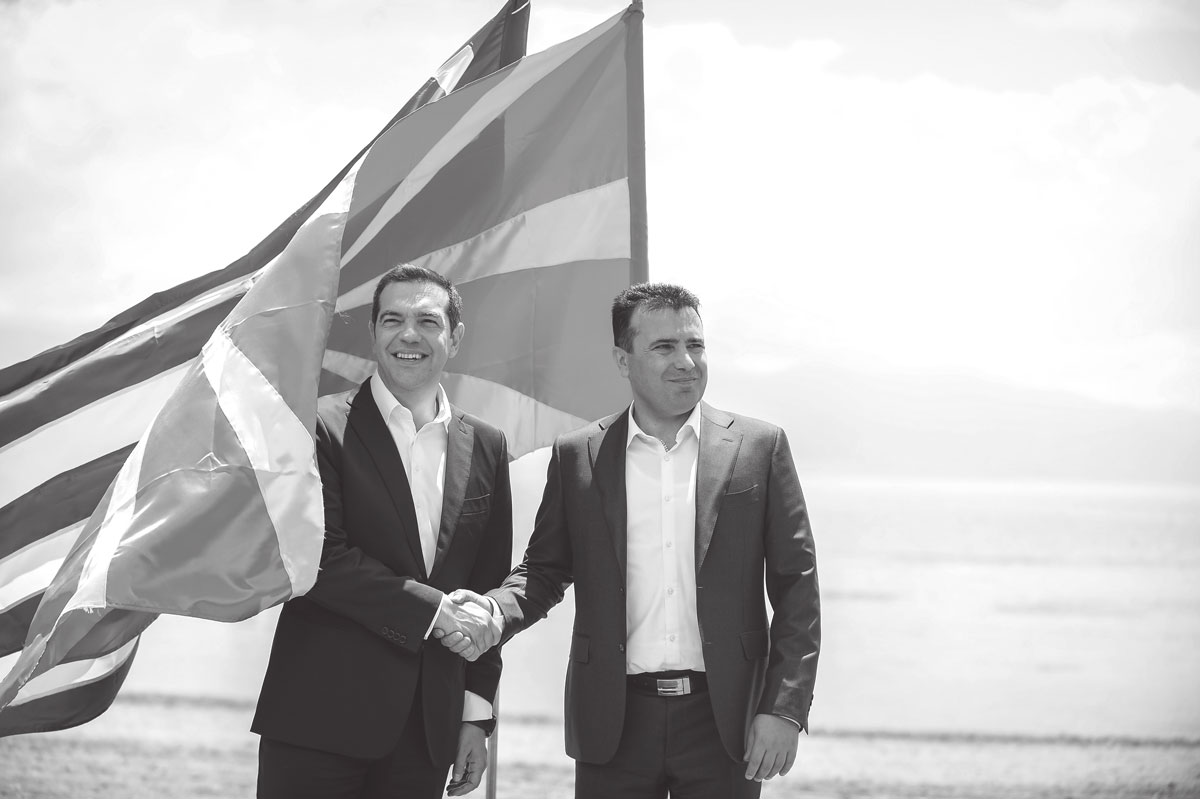Interview Nikola Dimitrov, Minister of Foreign Affairs, Republic of North Macedonia.
You have reached a historic agreement with your Greek counterparts on the name issue. But has it come at the wrong time for the EU? There seems to be a sense of panic in Brussels that whatever is to happen about the Western Balkans needsto happen before the European elections or it may not happen at all, if the populists and nationalists register significant wins. Are you going to have enough support from within the EU as you implement the reform process?
What we strive for is to have functional strong institutions and proper checks and balances.
The timeline of the EU decision-making process is more or less already set. One scenario is to publish the reports by the Commission after the European parliamentary elections. In any event, we have to consider that the result of the European elections will be part of this decision- making process. In the case of Macedonia (soon to be North Macedonia) there are two important elements. The first one is that we have been locked in the waiting room since 2005 as a candidate country, yet since 2009 we had a stream of positive reports from the Commission that concluded that Macedonia should start accession talks, but there was no political consensus because of the name issue. We are now focused on the start of the journey. The process matters more than the goal of joining, because if we join today we are still the same country, so we need to use the process, which essentially is a coaching exercise, to make our country a proper European democracy. We have to have a performance-based process because accession always fails if you politicise it. We need to have a rigid, strict assessment of the progress or lack of progress. The more we deliver, the less difficult it is going to be for EU member states to make the case for their public opinion.
Are you confident that the agreement hasn’t come too late for Macedonian society either? Do you feel that it can energise people who have seen their expectations frustrated again and again? Can you secure the political will and the social support for the painful reform process?
The agreement is only one driving factor that finally removes the obstacle to moving forward. The other driving factor is provided by the painful experience of what we have experienced as a society locked in the waiting room, when our previous prime minister essentially lost his moral compass. He made institutions weak and personalised political power by concentrating it around him and his inner-circle. The government in which I serve is in its 20th month, and was born as the result of the mobilisation against this very model. What we strive for is to have functional strong institutions and proper checks and balances. It is not only the EU that is driving the dynamic here. It is also the experience of a genuine crisis of weak institutions, and a culture of impunity and corruption indicating strong abuse of public offices. Our society is ready, public opinion is very critical and the tolerance for mistakes is very low. This creates a good incentive for the government, as well as the challenge of managing high expectations. Implementation is critical. To me as a citizen, this is a different society when it comes to media environment as the influence of public opinion remains very strong.
Will NATO membership status for Macedonia impact the relationship with Albanian? Will that ease relations with Albania?
For us NATO membership is unfinished business. We should have been there. We expected an invitation at the Bucharest summit in 2008, but Greece objected at the time. Part of the process of political maturing that we have undergone is the realisation that becoming a NATO member means we need to be wanted by those of our neighbours which are already in. This means that we will be allies, and we will have common legal obligations under Article 5 of the Washington Treaty. This is a huge step towards certainty. The message is that this country is here to stay within its borders; that makes us more predictable for the big international corporations in terms of investments. This is something that Montenegro has witnessed since they joined NATO. Together with Albania and Croatia we were part of the so-called Adriatic Charter, a format that gathered momentum before the NATO Summit in Bucharest and which is still operational. 84% of our citizens support our NATO bid. This is not a move against any country, but a reflection of the internal consensus among all the major political stakeholders since 1993 (the time when we first articulated that NATO and the EU were our strategic goals). A quarter of a century later we are close to realising one of those objectives. We have shared the burden already, as at some point Macedonia was the 4th largest per-capita contributor in terms of troops to the ISAF mission in Afghanistan, but we have not shared the benefits of membership.
Is Macedonia’s EU integration its national responsibility alone, or more of a regional issue? Is the EU Agenda for the Western Balkans appropriate in treating the region as a whole? Or should it be more tailor-made state by state?
Probably both. If you hold up country A because of country B, the process fails. If you politicise the accession process, how do you convince the public opinion in the member states that the process is actually fair, strict and merit-based? On the other hand, we cannot be a successful, stable, prosperous country if our neighbours are struggling. We have all the interest in the world, for selfish reasons, to wish the best for Albania, Serbia and Kosovo. We all suffer if there is a major problem in the region. If there is a major success it is not only an inspiration for others, but also adds value to how the region is perceived. You can’t win if your neighbour is suffering.
Interview conducted by Oana Popescu and Rufin Zamfir.


